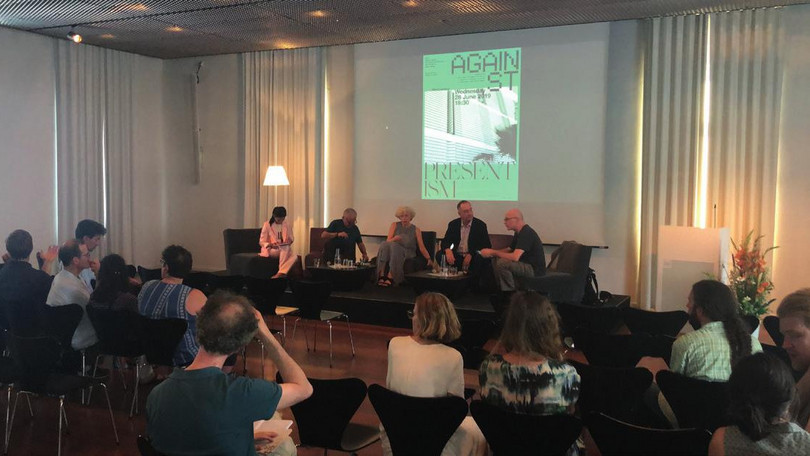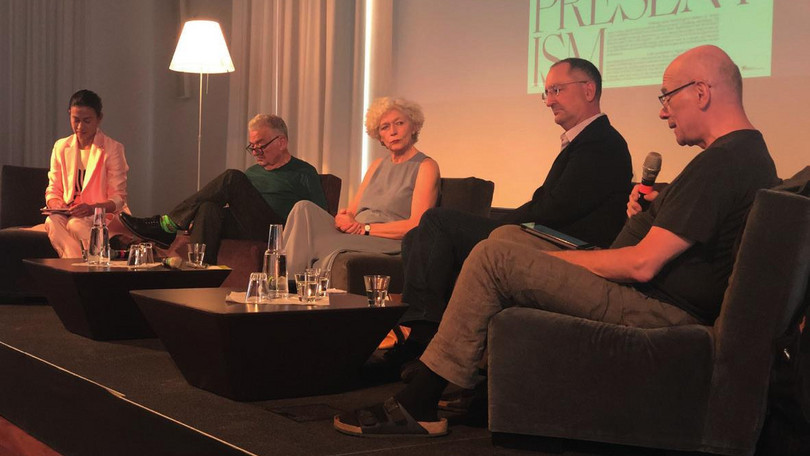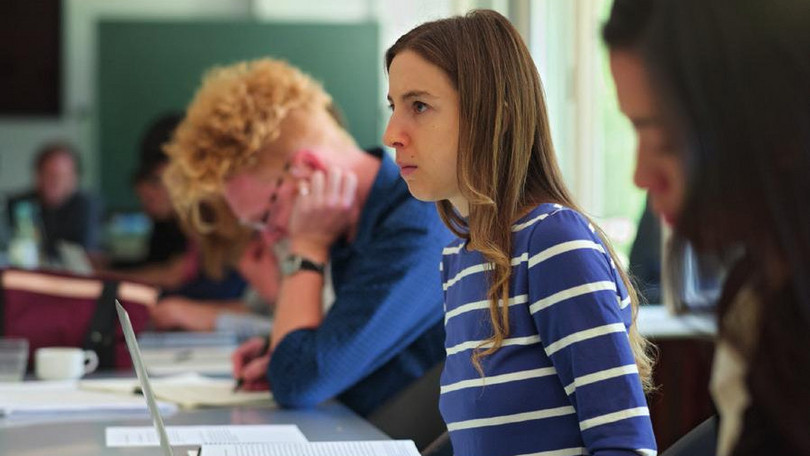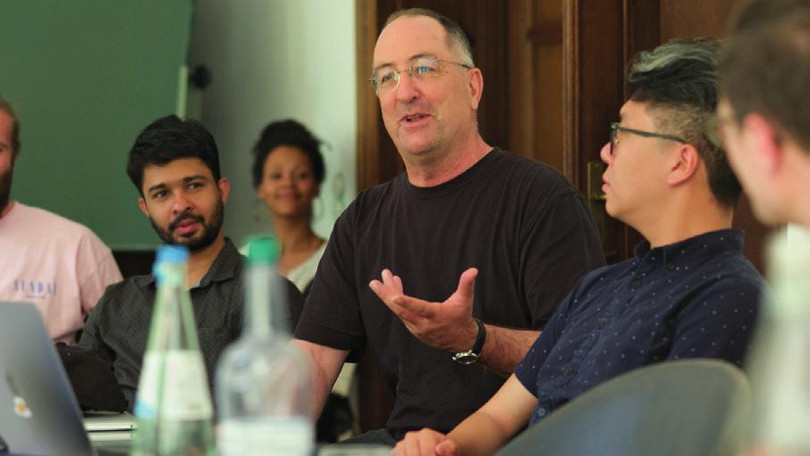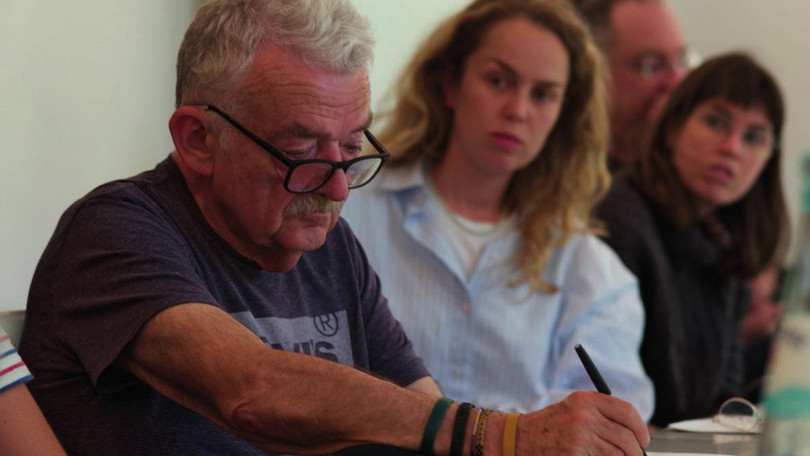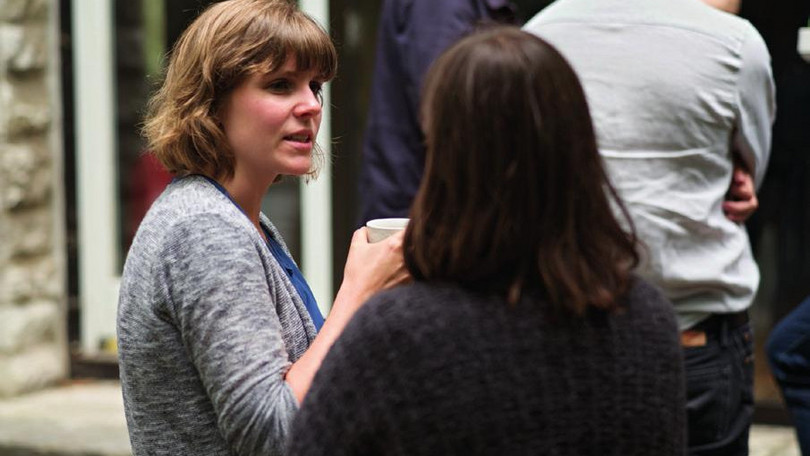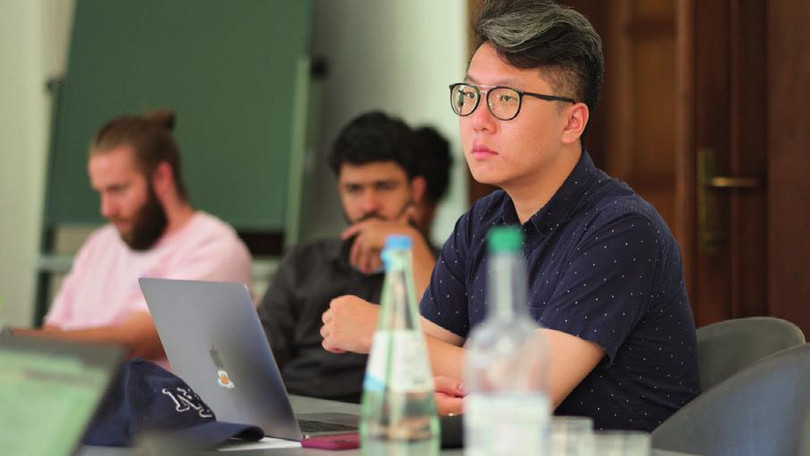Against presentism. Historicizing mediality
Stanford–Leuphana Summer Academy 2019
Call for Papers 2019
Thinking about technological changes or revolutions is often marked by a presentist, ahistorical mode of thinking and debate. Consider the contemporary discussion about »digital culture« and its technologies. The tropes mobilized are usually technicist and innovation- or even disruption-oriented, in both their affirmative and critical guises. Little attention is given to historical precursors of technologically driven social change. Even less attention is given to concepts and theories from other historical periods that might help investigate and understand our current predicament.
The Stanford-Leuphana Summer Academy seeks to change perspectives by focusing on concepts and theories that break with the myopia of presentism. In seeking to formulate a new research area in terms of other periods (e.g. premodern or early modern) and fields (e.g. anthropology, religious studies, art history, etc.), this 5-day seminar seeks to historicize mediality in productive and innovative ways. If »digital cultures« are not only modernity’s final product, but also brought an end to modernity, then it might be inspiring to think about digital cultures beyond or apart from modern concepts. What terms are historically specific for an age or culture, and what concepts apply broadly to various phenomena from the premodern to the present age? In what ways do preliterate, oral, or ritualistic cultures intersect with digital modes of information? How can these other perspectives change our thinking about the present?
Key terms: »ritual«, »authorship«, »sovereignty«, »arcane«, »orality«, »participation«, »public sphere«, »social construction of time«, »art«, »literature«, »history«, »philosophy«, »history of science«, »historiography«
Date
June 24–28, 2019
Location
Stanford Berlin, »Haus Cramer«, Pacelliallee 18, 14195 Berlin
Download Schedule
Participants
Faculty
- Timon Beyes (Professor of Sociology of Organisation and Culture, Leuphana University)
- Shane Denson (Professor of Film and Media Studies, Stanford University)
- Elena Esposito (Professor of Sociology, University of Bielefeld and University Modena-Reggio Emilia)
- Marisa Galvez (Professor of French, Italian, and German Studies, Stanford University)
- Hans Ulrich Gumbrecht (Professor emeritus of Comparative Literature, and of French, Italian, and German Studies, Stanford University)
- Thomas Macho (Professor emeritus of Cultural History, Director of the International Research Center for Cultural Studies (IFK), Vienna)
- Karla Oeler (Professor of Film and Media Studies, Stanford University)
- Claus Pias (Professor of History and Epistemology of Media, Leuphana University)
- Fred Turner (Professor of Communication, Stanford University)
- Sigrid Weigel (Professor emeritus of Literature and Cultural Science, Berlin)
Coordinator
- Nelly Y. Pinkrah (PhD student, Leuphana University)
Doctoral Students
- Muhammed Ashraf T (University of Hyderabad): Roots of the Critique: Historicizing Muslim Digital Mediation
- Jason Beckman (Stanford University): Virtual Mirrors: Identification in Second-Person Narrative and Virtual Reality
- Annika Butler-Wall (Stanford University): (Re)productive Capacities: Gender, Labor, and the Prehistory of Digital Capitalism
- Andrea Capra (Stanford University): The Horror of Modernity: Cybernetics and the Arcane
- Hank Gerba (Stanford University): Interfaces of Control, Interfaces of Desire
- Amber Harper (Stanford University): The Cinematic Imagination: An Archaeology'Konrad Hauber (University of Freiburg): Prehistories of Semiosis. French Optical Telegraphy and the Genealogy of Communication, ca. 1750-1850
- Julia Huggins (Brown University): Ambient Exergue: Use-Agreement, Gesture, and Consensual Atmospherics
- Matthias Koch (Leuphana University): A Muddle of Times: On Anachronism in Contemporary Media Historiography
- Jeff Nagy (Stanford University): From “Emotional Hearing Aids” to “Emotion as a Service”: Psychometrics, Disability, and Emotional Big Data
- Thomas Pringle (Brown University): The Whole Earth and the Earth System in South African Apartheid
- Gottfried Schnödl (Leuphana University): History or Epochs – Historicizing Media History
- Jordan Sjol (Duke University): Toward a Media Theory of Finance
- Sonja Solomun (McGill University): Autonomous Intuition: The Gendered Pre-condition of Algorithmic Social Media
- Douglas Stark (University of North Carolina at Chapel Hill): ‘Shake the Dice-Box of Chance’: Aleatory Composition Techniques
- Romina Wainberg (Stanford University): Against the Grain of A-History: Three Contemporary Approaches to Technoscience Recalcitrant to Presentism.
- Lotte Warnsholdt (Leuphana University): There’s no Time like the Present (Past+Future Perfect)
- Renren Yang (Stanford University): A Media Genealogy of Literary Fame in Modern China: Paper, Stage, Screen, and Sphere
- Brett Zehner (Brown Univeristy): Dark Simulation at RAND: The Production of Subjectivity and the Birth of Artificial Intelligence
- Yechen Zhao (Stanford University): The Acheiropoietic Notion of Photography in Ugo da Carpi’s Saint Veronica Altarpiece
Guests
- Migle Bareikyte (PhD student, Leuphana University)
- Ben Peters (Professor of Media Studies, University of Tulsa)
- Karen Kramer (Director Stanford in Berlin)
- Helen Krueger (PhD student, Stanford University)
Public Evening Event
Panel Discussion at the Institute for Cultural Inquiry Berlin (ICI)
Review
Review from the Frankfurter Allgemeine Sonntagszeitung, June 30, 2019
Against the Presence: What is digital “presentism”?
Is this the word with which our digitalized era is summed up: “Presentism”? One can expect that the term will soon be mentioned more often, because last week ten distinguished American and German cultural theorists met at a Summer Academy in Berlin hosted by the universities of Stanford and Lüneburg to take a stand against it, “Against Presentism”, and thus give the impression as if they understood what it meant. In fact, even the first association should be the right one: The way in which people talk about digitization promotes ahistorical thinking; if everything that happens all over the world and what has ever happened is to be digitally available at every moment and tend to trigger an instantaneous reaction, then history and future alike, time in general, dissolve and make way for an eternal present. With unforeseeable consequences for the humanities, but also for societies and their self-understanding of political goals. But the term is actually already occupied. Even if one disregards the fact that in German “Präsentismus” usually means the behaviour of employees who go to work despite illness, in the English-speaking sciences at least two fields of meaning of the word already exist. In philosophy, “presentism” refers to the ontological thesis, which has been discussed for about 25 years, that only the present time and the present things exist. And in the historical sciences it is mostly a critically meant term for the anachronistic discourse on the past operating with present categories; since 1950 it has also been discussed under this title to what extent all historiography is necessarily shaped by the present of the writer.
In 2013, “presentism” appeared in a not quite so academic context as an indicator of digital culture in particular: in the best-selling book Present Shock by the New York media and cyberpunk theorist Douglas Rushkoff, which was also published in German: in digital consciousness of time, society “concentrated on the present moment. We experience everything in the live ticker, in real time, always-on.” It’s less about acceleration, Rushkoff wrote: “It’s about the loss of meaning of everything that isn’t present—because the onslaught of what’s happening right now is so enormous.” The sense for linear stories is dwindling, as is the sense for goals in the future.
So now this intuition has arrived in the higher spheres of cultural theory. The Summer Academy was not open to the public, but on a very hot evening some of the participants at the Berlin “Institute for Cultural Inquiry” were supposed to give an insight into the debates. The communication scholar Fred Turner, author of the famous book From Counterculture to Cyberculture (2006), called for a kind of rehistorization in order to regain one’s own life against the monetarization taking place behind the smartphone display. You just have to keep asking the question: Where did these machines come from, who made them? The literary scholar Hans Ulrich Gumbrecht admitted that he did not own a mobile phone at all, but raised two objections to the initial thesis. On the one hand, the change from an open to a closed time horizon, which he also noted, is not only connected to digitalisation. On the other hand it is not only bad: His students today can develop an immediate relationship with the beauty of an old text even without any historical explanation. He recommended that intellectuals deal playfully with this new “experimental situation”.
What this means exactly and how the “short-sightedness of presentism” can be overcome will probably require some time to wait for the future scholarly fruits of the Berlin summer meeting. The previous meanings of “presentism” could also be sublated in the questions that arise there. Is “moral self-satisfaction” the result, as historian Lynn Hunt suspected already in 2002 in an essay “Against Presentism”? Is the ability to distance from oneself lost? The ability to think dialectically? Or will quite other forces be released instead?
One could, however, also ask whether it is the “present“ in which digitalization allows us to live. The devices give their users the opportunity to be in several places and in several ways at the same time—only in the presence of what is given here and now they are certainly no longer any more. But where exactly, in what kind of intermediate world are they? Perhaps this is the decisive question to track down the dissolving time and its possible political consequences. The net itself is “against presentism”, so to speak.
Mark Simeons


